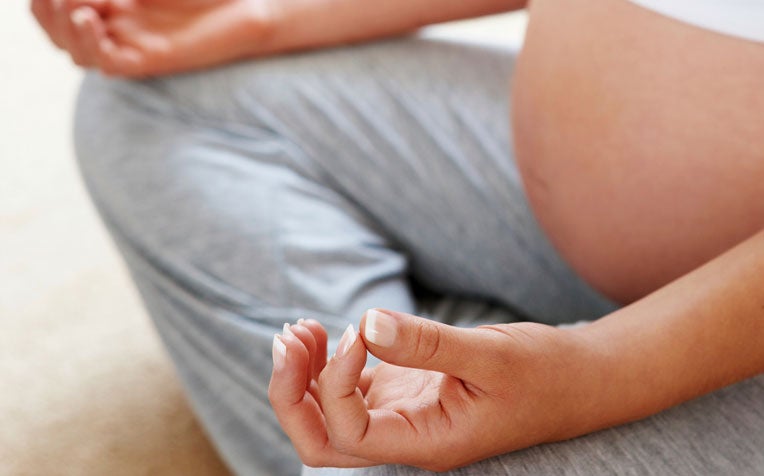
Seeking therapy and counselling are some ways new mothers can improve their mental health.
When a pregnant woman is severely stressed, anxious or depressed, she is not the only one suffering. Her unborn child is affected too.
How a mother's mental state might affect her unborn baby
According to the preliminary findings of a landmark local study, such babies have less developed limbic systems in their brains (networks linked to things such as memory, stress regulation, emotional reactions and decision-making). The more depressed a mother is, the more her baby is affected. He may be shorter at birth, and as he develops, he may be more distracted, and have poorer memory.
Researchers studied the mental and emotional states of 1,200 mothers and scanned their babies’ brains at a week old as well as later in life. The study is a sub-study of the Growing Up in Singapore Towards Healthy Outcomes (GUSTO) study, and a joint effort of KK Women’s and Children’s Hospital (KKH), the National University Health System, and the Singapore Institute for Clinical Sciences, the Agency for Science, Technology and Research.
Explaining how babies might be affected in the womb, Dr Helen Chen, Head and Senior Consultant, Department of Psychological Medicine, KK Women’s & Children’s Hospital (KKH), a member of the SingHealth group, said that while an unborn baby may not sense his mother’s distress, stress hormones can cross the placenta and influence the baby’s structural brain development. “The baby is then primed to live in a state of high stress, and there are studies which suggest that infants of anxious mums are more temperamental or difficult to settle.”
Implications of findings
Doctors here find the study results impactful, as they now have local data to use in their practice, where previously they relied on research in other populations. “As clinicians, these findings help us educate women about the need for intervention if they suffer from depression. Studies suggest that infants of anxious mums are more temperamental or difficult to settle. or anxiety during pregnancy, as there can be a real impact on their babies.”
Dr Chen said early intervention and treatment are extremely important. “I have seen women who have aborted a much wanted and planned pregnancy because they couldn’t cope with the antenatal depression and anxiety.”
Although some studies indicate that babies are more impacted if the mother is depressed in the last trimester than in earlier ones, doctors here are more concerned about the duration of the emotional disturbance. “If a mother is depressed or anxious persistently and for a long time, rather than transiently, it will probably impact her baby more, as physiological changes associated with her mental state can have a prolonged effect on foetal growth.”
If the depression continues after delivery, most of these mothers have difficulty caring for their babies, who in turn are hard to settle, awake frequently and have feeding difficulties.
“The most worrying cases are women with unplanned pregnancies who struggle to cope. Some reject their babies or give up caring for them. Some severely anxious ones have irrational fears of not being able to care for their babies, or of dropping them, because they are so distressed. These women need special intervention to address the mother-infant bonding problem, apart from treatment for their depression and anxiety.”
Support and understanding for mothers
Dr Chen advises mothers to be mindful of their emotional state and if they have distressing symptoms, to speak to their obstetrician or general practitioner who can refer them for psychological intervention. This does not just involve pregnancy-safe medication alone. There is also therapy and supportive counselling.
If mothers are carrying guilt about their moods affecting their babies’ development, they should let go of the guilt and focus on what they can do to help now, Dr Chen said. “And that is keeping well for her child, and building a strong family unit. Fathers definitely have a big role in this too!”
Many women are uncomfortable about seeking psychological help, but KKH’s Women’s Mental Wellness Service has counsellors and case managers who work with psychiatrists and psychologists to offer help at both outpatient clinics and inpatient wards. The hospital’s Department of Psychological Medicine is also raising awareness of the importance of a healthy family system to ensure the psychological and emotional well-being of women and their children.
Dr Chen sees the need for society to be more understanding towards pregnant women. She said although there is currently no local data, clinical observations suggest that women in high-pressure jobs with long hours and tight timelines face more challenges, and may be more vulnerable.
“Societal pressures on working women demand that they continue to perform. But pregnancy is, in itself, demanding psychologically and physically, so this is a time of vulnerability.
“I hope that through more public education, our community can understand the need to address maternal mental health issues, and that employers, supervisors and colleagues will be supportive of pregnant women. We need them to nurture well the next generation, on whom we will also depend on collectively as a nation!”
Ref: R14
Contributed by


















 Get it on Google Play
Get it on Google Play